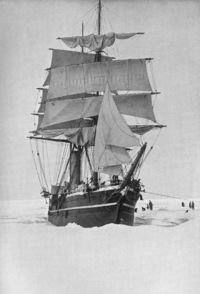The discovery of Antarctica is a fascinating chapter in human exploration and scientific advancement. This article delves into the history of Antarctic exploration, highlighting key expeditions and discoveries that have shaped our understanding of the frozen continent. From the early sightings by explorers to the heroic age of exploration, and ultimately the establishment of research stations, Antarctica continues to captivate the imaginations of scientists and adventurers alike.Antarctica, the southernmost continent on Earth, remained unknown to humans until relatively recent times. The discovery and subsequent exploration of this icy landmass have revealed crucial insights into our planet’s history, climate, and ecosystem. This article provides a comprehensive overview of the major milestones in Antarctic exploration and the groundbreaking scientific achievements made by those who ventured into this inhospitable and remote region.
- Early Sightings and Theories: The first recorded sighting of Antarctica dates back to the early 19th century. In 1820, the Russian expedition led by Fabian Gottlieb von Bellingshausen and the British expedition led by Edward Bransfield independently laid eyes on parts of the Antarctic Peninsula. These initial encounters sparked curiosity and set the stage for further exploration.
- The Heroic Age of Exploration: The late 19th and early 20th centuries marked the Heroic Age of Antarctic Exploration. Adventurous explorers like Roald Amundsen, Robert Falcon Scott, and Ernest Shackleton embarked on treacherous journeys to claim the title of the first to reach the South Pole. In 1911, Amundsen successfully reached the Pole, followed by Scott’s tragic journey the following year. Shackleton’s ill-fated Endurance expedition is also renowned for its remarkable tale of survival against all odds.
- Scientific Discoveries: In addition to the race to the South Pole, the Heroic Age expeditions yielded significant scientific discoveries. Geology, meteorology, glaciology, and biology were just some of the fields that benefited from these pioneering explorations. The expeditions of Douglas Mawson and his team, for example, led to important geological findings and the first scientific observations of Antarctica’s unique fauna.
- International Cooperation and Research Stations: Following World War II, nations began to recognize the scientific value of Antarctica, leading to international cooperation in the region. The signing of the Antarctic Treaty in 1959 established Antarctica as a peaceful and cooperative scientific preserve. Today, numerous research stations operated by various countries facilitate ongoing scientific research in diverse disciplines, including climate change, oceanography, and astronomy.
- Contemporary Exploration and Environmental Concerns: In recent years, technological advancements have enabled further exploration and scientific investigation in Antarctica. Researchers employ cutting-edge tools, such as satellite imagery, remote sensing, and underwater exploration, to study the continent’s ice shelves, wildlife, and ecosystems. The findings contribute to our understanding of climate change and the potential impact on global sea levels.The discovery and exploration of Antarctica have been integral to expanding our knowledge of the Earth and its natural processes. From the early sightings and the race to the South Pole to the establishment of research stations and contemporary scientific advancements, Antarctica remains a captivating frontier for scientific inquiry. As humanity continues to grapple with the challenges posed by climate change, ongoing research in Antarctica holds the key to unlocking invaluable insights into our planet’s past, present, and future



















Add Comment